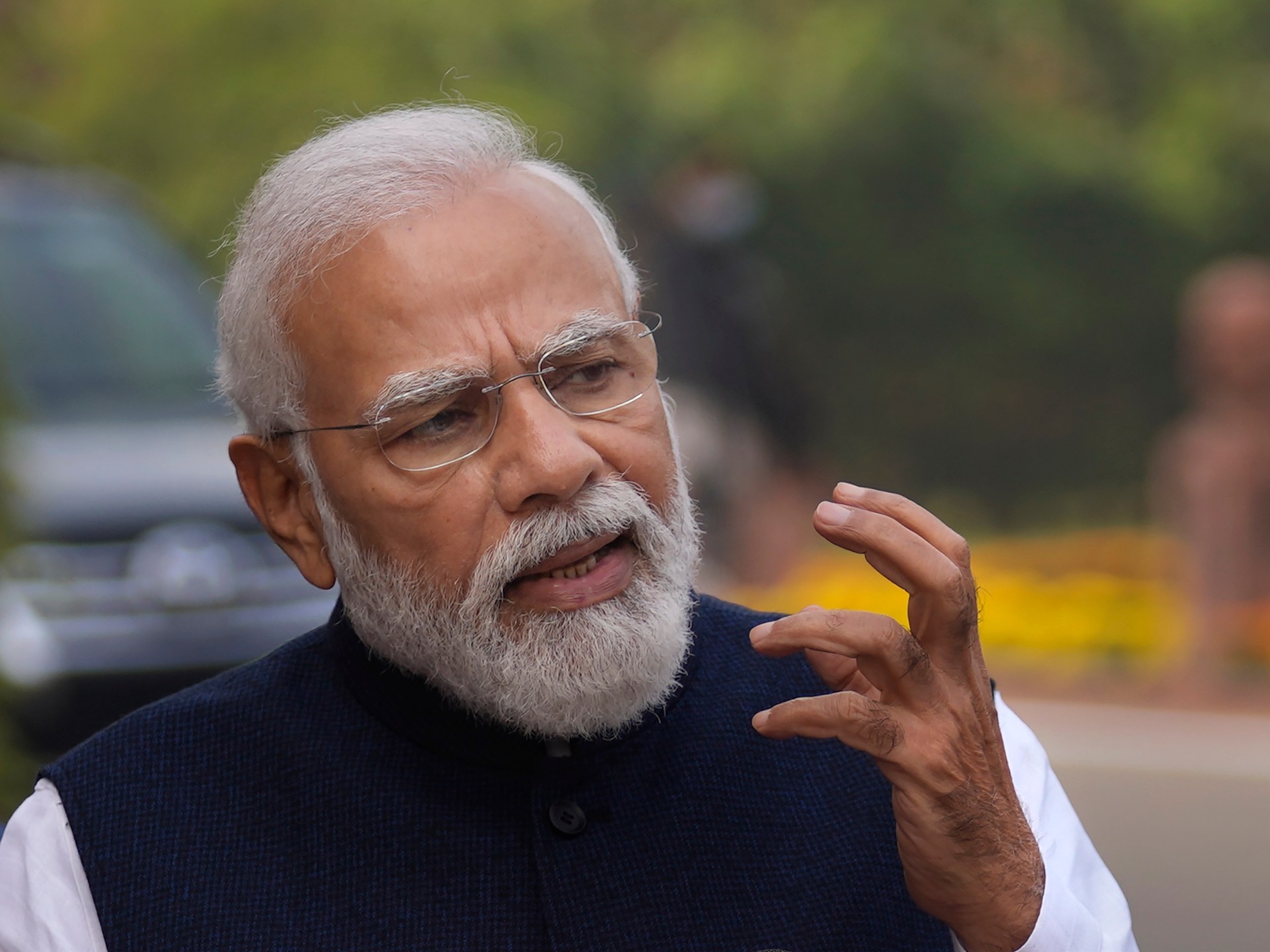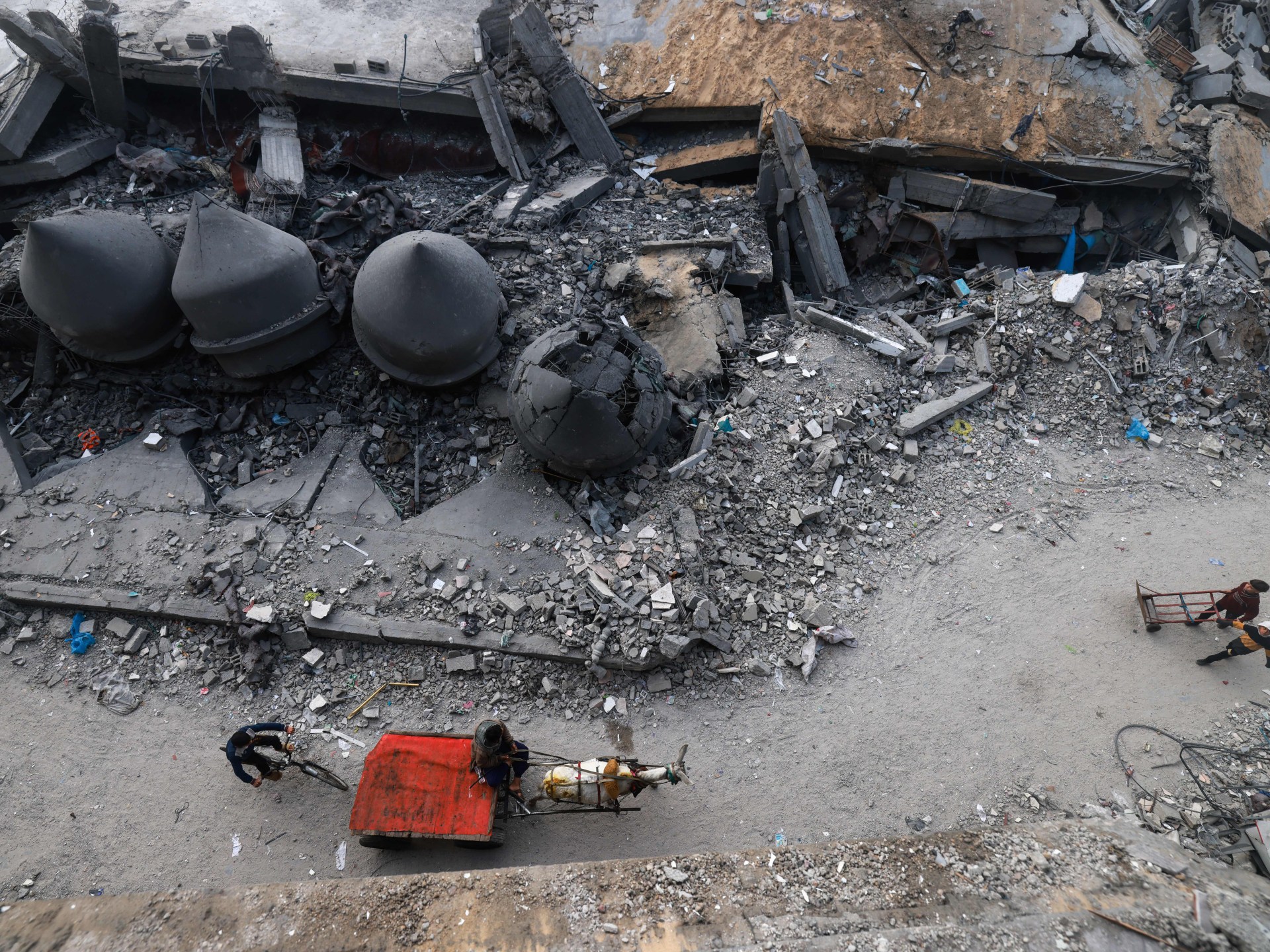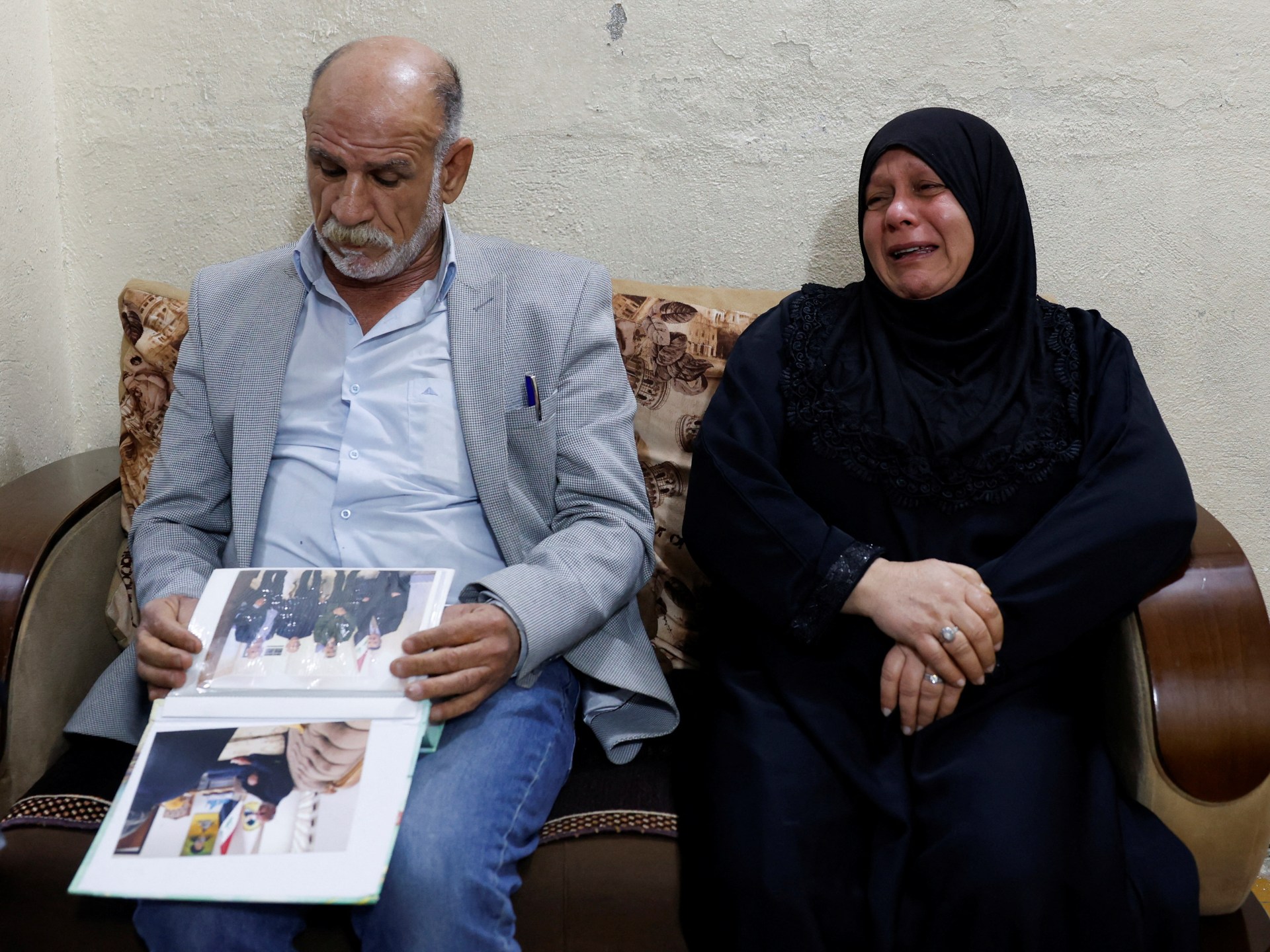‘Ideology of hate, polarisation, divisions’ consuming India
Tushar Gandhi has blamed the rise of PM Modi and the BJP for increasing polarisation and division in the country.
India’s rising tide of Hindu nationalism is an affront to the legacy of Mahatma Gandhi, his great-grandson said ahead of the 75th anniversary of the revered independence hero’s assassination.
Gandhi was shot dead at a multi-faith prayer meeting in January 1948 by Nathuram Godse, a religious zealot angered by his victim’s conciliatory gestures to the country’s minority Muslim community.
Godse was executed the following year and remains widely reviled, but author and social activist Tushar Gandhi, one of the global peace symbol’s most prominent descendants, said his views now have a worrying resonance in India.
“That whole philosophy has now captured India and Indian hearts, the ideology of hate, polarisation, divisions,” he told AFP news agency.
“For them, it’s very natural that Godse would be their iconic patriot, their idol.”
Tushar, 63, attributes this tectonic shift to the rise of Prime Minister Narendra Modi and his Hindu nationalist Bharatiya Janata Party (BJP).
Modi took office in 2014 and Tushar says his government is to blame for undermining the secular and multicultural traditions that his great-grandfather sought to protect.
“His [Modi’s] success has been built on hate, we must accept that,” Tushar added. “There is no denying that in his heart, he also knows what he is doing is lighting a fire that will one day consume India itself.”
Reverence for Godse
Gandhi’s assassin is revered by many Hindu nationalists who have pushed for a re-evaluation of his decision to murder a man synonymous with non-violence.
A temple dedicated to Godse was built near New Delhi in 2015, the year after Modi’s election, and activists have campaigned to honour him by renaming an Indian city after him.
Godse was a member of the Rashtriya Swayamsevak Sangh (RSS), a still-prominent Hindu far-right group whose members conduct paramilitary drills and prayer meetings.
The RSS has long distanced itself from Godse’s actions but remains a potent force, founding Modi’s party decades ago to battle for Hindu causes in the political realm.

Modi has regularly paid respect to Gandhi’s legacy but has refrained from weighing in on the campaign to rehabilitate his killer.
Since Modi became prime minister, the country has seen increased attacks against Muslims, who form 15 percent of India’s 1.4 billion population.
Modi’s BJP and the RSS have warned Hindus against religious conversions to Islam and Christianity and called for action to prevent a “demographic imbalance” in the world’s second-most populous nation.
The ruling BJP has been accused of encouraging the persecution of Muslims and other minorities by hardline Hindu nationalists since coming to power, allegations it denies.
Last week, the Indian government used emergency powers to block the airing of a documentary that questioned Modi’s leadership during the 2002 Gujarat riots and banned its sharing on social media. Twitter and YouTube complied with the request and removed many links to the documentary.
Modi was the chief minister of the western state of Gujarat when it was gripped by communal riots.
The violence began after 59 Hindu pilgrims were killed in a fire on a train. Thirty-one Muslims were convicted of criminal conspiracy and murder over that incident. About 2,000 people, mostly Muslims, were killed in the unrest that followed.
India’s foreign ministry has dismissed the documentary as a “propaganda piece”.




